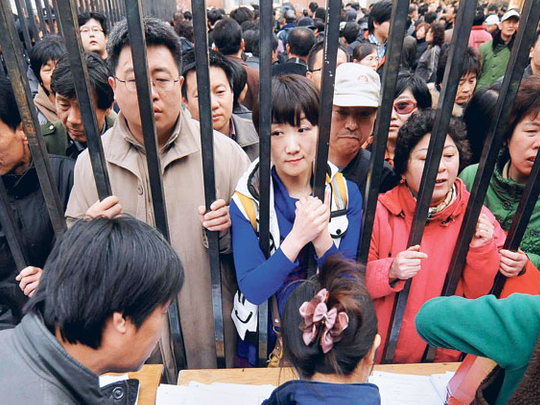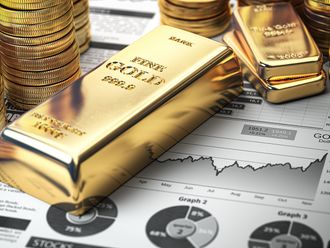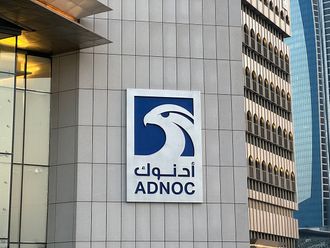
Beijing : China should keep tightening monetary policy and "strictly" control investment projects to prevent excess liquidity from fuelling asset price inflation and avoid overheating the economy, central bank adviser Xia Bin said.
"Monetary policy need to be further tightened because there is still a lot of liquidity out there," Xia, also a senior researcher at the State Council's Development and Research Centre, told a financial forum in Beijing on Friday. The property market is the "biggest swing factor" in the economy this year, Xia said.
Premier Wen Jiabao, to contain price risk as the world's third-largest economy rebounds, targeted a 22 per cent reduction in new lending from 2009's record expansion. He also raised reserve requirements three times this year and intensified a campaign against real estate speculation. Property stocks in Shanghai, 2010's worst-performing index, plunged 28 per cent against an 18 per cent drop by the benchmark.
China's economy expanded 11.9 per cent in the first quarter and property prices in 70 cities surged by a record in March, prompting the government to ban loans for third-home purchases and raise mortgage rates and down-payment requirements for second-home purchases.
Rapid property price gains could harm financial security and social stability, Qi Ji, vice housing minister, said on Thursday.
China's property market should be driven by real home consumption rather than investment or speculation, Xia said yesterday. The government should further adjust home sales taxes and mandate down-payment ratios to crack down on speculation, he added.
Go for less than 10% growth
China needs to slow economic growth to below 10 per cent to avoid overheating and contain inflation, a cabinet researcher said.
"China's economic growth may slow later this year, which is necessary to avoid overheating," Liu Shijin, deputy director of the State Council's Development and Research Centre, said at a financial forum in Beijing yesterday. "While the government takes steps to damp asset prices, we should also closely monitor inflation" after record bank lending last year, Liu said.
China's statistics bureau may this week report an acceleration in producer price gains and consumer inflation, underscoring a risk of overheating even after Premier Wen Jiabao unleashed what economists called "draconian" measures to crack down on property speculation and raised banks' reserve requirements for a third time this year to rein in liquidity.
Wen's campaign to cool real estate prices may damp expansion of the world's third-largest economy as the Greek debt crisis threatens to undermine export demand, exacerbating any slowdown. Concerns that the European contagion may spread led Asian stocks to tumble on Thursday after US equities plunged the most in a year the previous day.
China now faces an "even more complex" environment as the debt crisis adds uncertainty to the global recovery and excessive liquidity in China pushes up asset prices, Liu said. "Where is the ultra-loose monetary policy going? That is like the other shoe that has yet to drop." — Bloomberg












